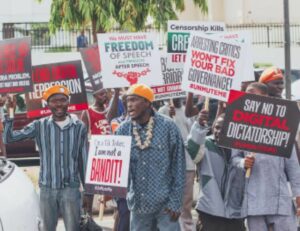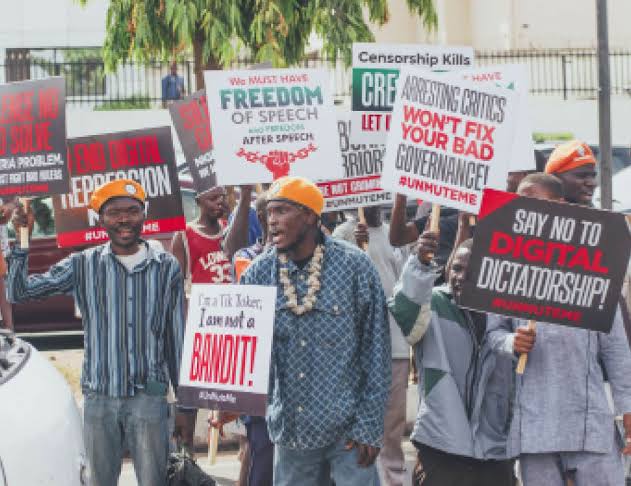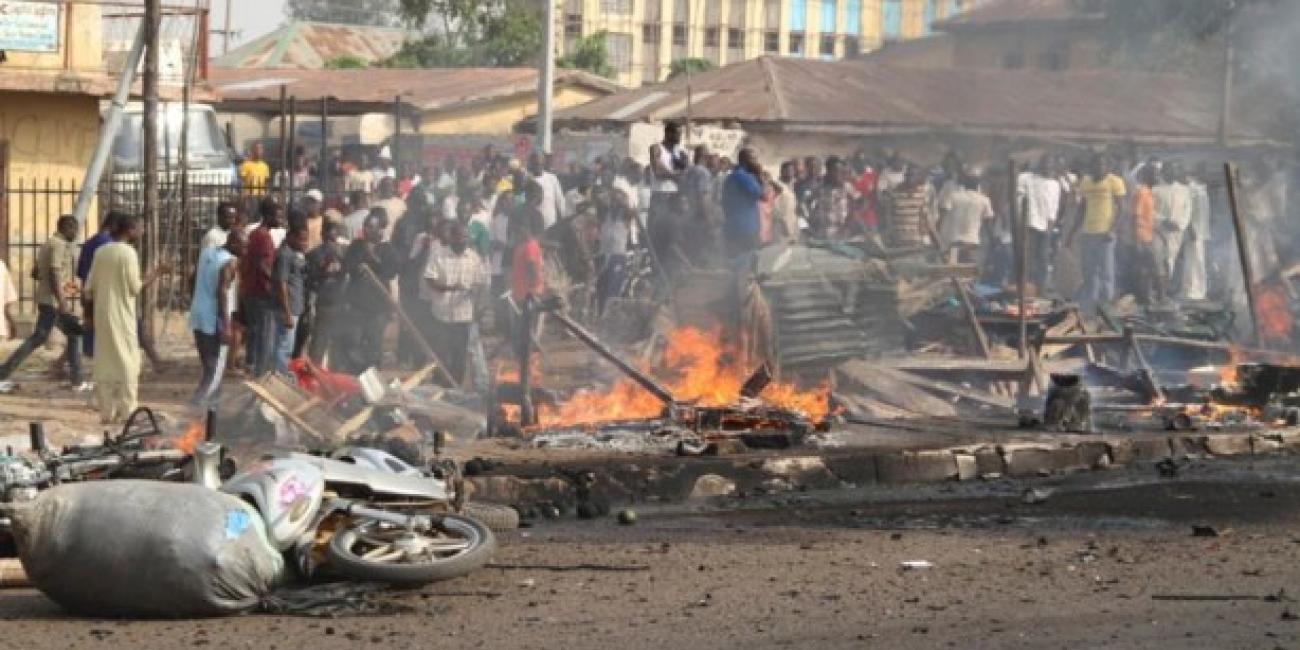A nationwide protest organized by the #TakeItBackMovement and other civil society groups commenced in Nigeria’s Federal Capital Territory (FCT), Abuja, to address the deepening economic hardship, pervasive insecurity, and shrinking democratic space under President Bola Tinubu’s administration. Demonstrators gathered early in the morning in the Apo district, a strategic location near key government institutions, chanting solidarity songs and holding placards with messages decrying soaring inflation, unemployment, and rising incidents of violence. The protest, tagged #FearlessInOctober, is a continuation of earlier demonstrations against policies perceived to exacerbate poverty and governance failures.

Security forces, including heavily armed police and military personnel, were deployed across Abuja, particularly at high-profile locations such as Eagle Square, the National Assembly complex, and major road junctions. The heavy security presence was intended to maintain order and prevent a repeat of violent clashes seen in previous protests, such as the #EndSARS movement in 2020. The #TakeItBackMovement has called on security agencies to protect peaceful protesters rather than suppress them, emphasizing the constitutional right to assembly and free expression.

The protesters’ grievances are rooted in stark economic and security statistics. According to the National Bureau of Statistics, over 133 million Nigerians—more than half the population—live below the poverty line, a figure worsened by inflation rates exceeding 30% and the removal of fuel subsidies in 2023. The #TakeItBackMovement highlighted that over 10,000 Nigerians have been killed in violent incidents since Tinubu’s inauguration in May 2023, with kidnappings, banditry, and terrorist attacks remaining rampant in regions like the North-East and North-West.
Beyond Abuja, the protest is unfolding in at least 20 other states, including Lagos, Benin City, Niger, and Kano, with organizers coordinating to ensure peaceful demonstrations. In Lagos, protesters are expected to converge at Ikeja Under Bridge, a symbolic location for past civil actions, while in Benin City, activities are centered around major public spaces. The movement has outlined demands including immediate government action to address food inflation, improve security, and reverse policies that have led to job losses and economic instability.
Organizers have also raised concerns about the shrinking civic space, pointing to arrests and intimidation of activists and journalists in recent months. They argue that the Tinubu administration has failed to deliver on campaign promises of renewed hope, instead implementing policies that have deepened inequality and eroded public trust. The #FearlessInOctober campaign draws inspiration from Nigeria’s June 12, 1993, election annulment protests, invoking the historical significance of the date to galvanize citizens for change.
Security operatives have been instructed to exercise restraint, with the Inspector-General of Police issuing a statement urging officers to respect protesters’ rights while maintaining public safety. However, reports from Abuja indicate minor tensions at some checkpoints, where protesters faced delays due to rigorous searches. Civil society groups have called for international monitoring to ensure the government adheres to democratic principles during the protests.
The #TakeItBackMovement has leveraged social media platforms, particularly X, to amplify their message, sharing real-time updates and videos of the demonstrations. Posts on X reveal widespread public frustration, with hashtags like #FearlessInOctober and #EndBadGovernance trending in Nigeria. Organizers have also encouraged citizens to join solidarity marches in rural areas to broaden the protest’s reach.
Economic analysts note that the protests reflect deeper structural issues, including Nigeria’s reliance on oil revenue and failure to diversify the economy. The removal of fuel subsidies and the naira’s devaluation have driven up the cost of basic goods, with a bag of rice now costing over N100,000 in many markets. These economic pressures, coupled with insecurity, have fueled public discontent, making the June 12 protest a critical moment for Nigeria’s democracy.
The protests are expected to continue throughout the day, with organizers planning a series of coordinated actions, including sit-ins and public speeches by civil society leaders. The government has yet to issue an official response to the demonstrations, but sources indicate that President Tinubu is scheduled to meet with key aides to discuss the situation. Civil society groups remain adamant that the protests will remain peaceful but resolute, urging Nigerians to demand accountability and better governance.

As the day progresses, attention will focus on how both protesters and security forces navigate the tense atmosphere. The #TakeItBackMovement has vowed to sustain the campaign until tangible reforms are implemented, signaling that the June 12 protests may mark the beginning of a broader movement for systemic change in Nigeria. With millions of Nigerians affected by the economic and security crises, the outcome of these demonstrations could shape the country’s political landscape in the coming months.




